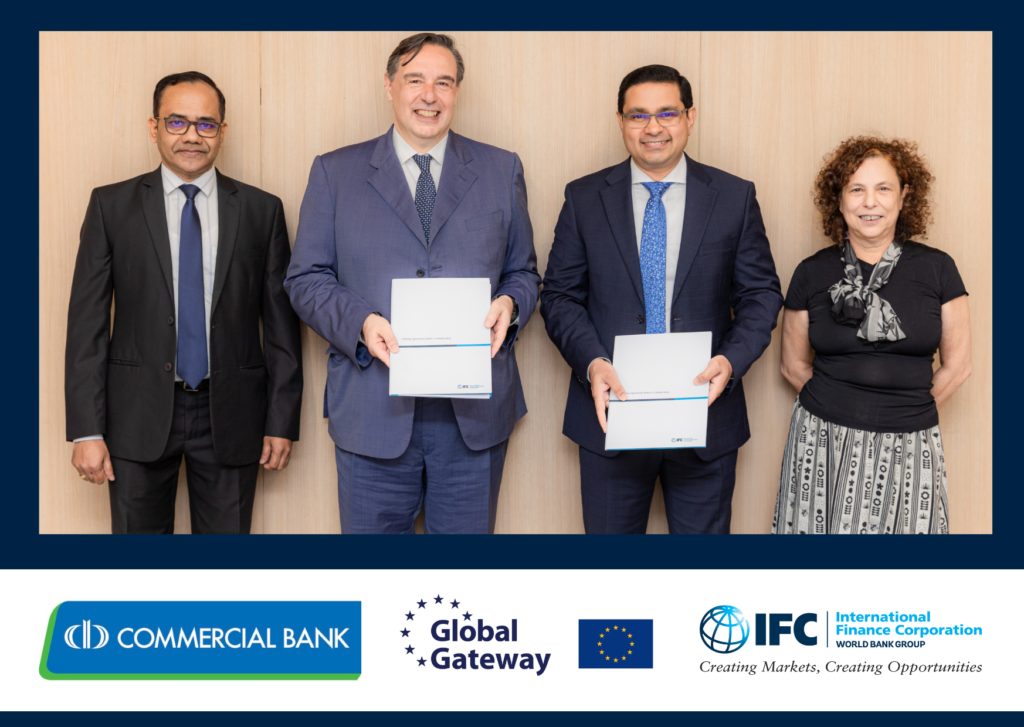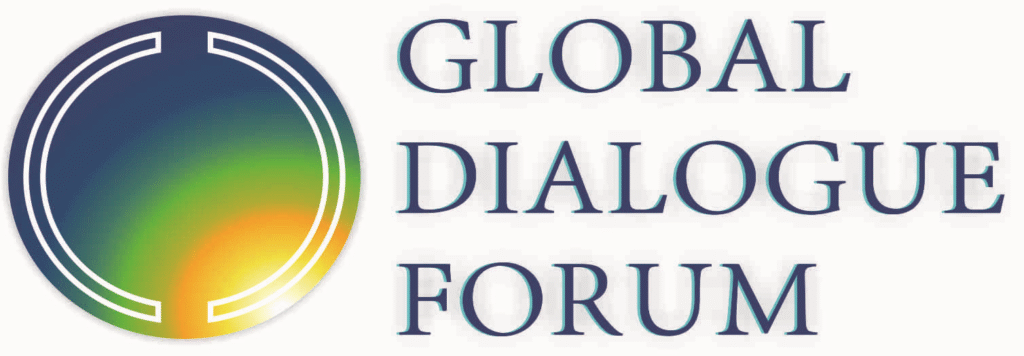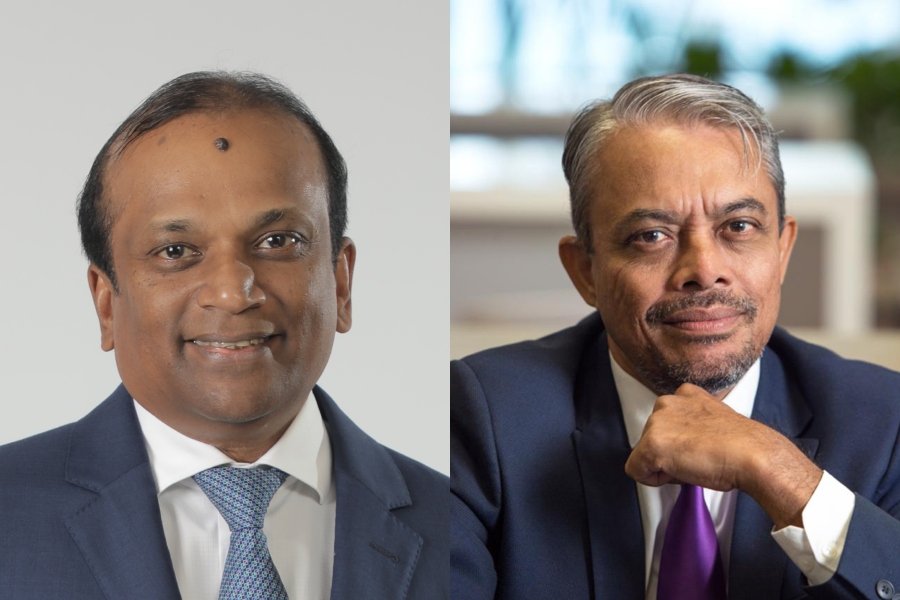In a move to spur sustainable investments in Sri Lanka, the International Finance Corporation (IFC) and the European Union (EU) partnered with the Commercial Bank of Ceylon (CBC) to scale up green finance, supporting the country’s commitments towards a low-carbon economy.

The partnership, which is under EU’s regional initiative ‘Accelerating Climate Smart and Inclusive Infrastructure in South Asia (ACSIIS)’, will help CBC set the foundations for net zero transition. With IFC’s technical support, CBC aims to grow its green financing portfolio by expanding into areas such as blue finance and green SMEs.
“The formulation of a robust climate transition strategy stands as a pivotal component within Commercial Bank’s strategic roadmap. We are delighted to engage the expert advisory services of IFC to effectively realize this critical initiative. As a leading advocate of sustainable banking practices, our primary objective is to expand our green portfolio while simultaneously advancing our journey towards achieving net zero emissions,” said Sanath Manatunge, Managing Director/ Chief Executive Officer of Commercial Bank.
Sri Lanka is among one of the most affected countries by extreme weather events. According to the World Bank, the country is expected to see a 1.2 percent annual gross domestic product (GDP) loss by 2050 due to climate change. Addressing climate change risks is a national priority for Sri Lanka, with commitments in reducing greenhouse gas emissions and increasing renewable energy in electricity generation.
“IFC will continue to assist Sri Lanka in developing and scaling up green finance to support the country in its path to a net-zero future,” said Riccardo Puliti, IFC’s Vice President for Asia and the Pacific. “We are excited to strengthen our partnership with Commercial Bank of Ceylon (CBC), fostering a robust green finance market in the country.”
Over the years, IFC has played a significant role in promoting sustainable and green finance in the country, including its support in developing the first national green finance taxonomy creating an enabling environment for climate-resilient investments. Financial institutions play a crucial role in driving green and sustainable finance. By scaling up its green finance portfolio, CBC will set an example for other financial institutions, signaling the importance of prioritizing climate-resilient investments.
“We are pleased to see a new initiative being launched today which advances the EU’s Global Gateway strategy here in Sri Lanka. Expanding the Commercial Bank of Ceylon’s green portfolio will provide better access to green finance, which is crucial for stimulating sustainable, economic growth. I am eager to see that additional investments in renewable energy, energy efficiency, sustainable industries will lead to cleaner air, water, healthier living conditions and a more sustainable future for the people in Sri Lanka,” said Carmen Moreno, the Ambassador of the EU to Sri Lanka.
CBC has been a longstanding partner, dating back to 2003. IFC has supported CBC through multiple investments as well as through advisory support and currently holds a 14.45 percent equity stake. In 2017, IFC invested $100 million in CBC to help the bank increase lending for renewable energy and energy efficiency projects in the country. CBC is also one of the three banks that received support from IFC through a $400 million cross-currency swap facility in 2023 to help facilitate the imports of essential goods such as food, medicines and fertilizers. Further, IFC and CBC joined forces to establish an early childhood development center in Batticaloa to help meet demand for quality childcare services among employed parents in the Eastern Province of Sri Lanka as well.
About ACSIIS
The ACSIIS—Accelerating Climate Smart & Inclusive Infrastructure—is a program in South Asia, supported by the European Union, committed to promoting climate-resilient progress across the region. With a core focus on engaging the private sector and fostering sustainable and inclusive investments, ACSIIS prioritizes green finance, urban sustainability, agricultural innovation, and gender equality.
About IFC
IFC—a member of the World Bank—is the largest global development institution focused on the private sector in emerging markets. We work in more than 100 countries, using our capital, expertise, and influence to create markets and opportunities in developing countries. In fiscal year 2023, IFC committed a record $43.7 billion to private companies and financial institutions in developing countries, leveraging the power of the private sector to end extreme poverty and boost shared prosperity as economies grapple with the impacts of global compounding crises. For more information, visit www.ifc.org
Stay Connected with IFC on social media.






